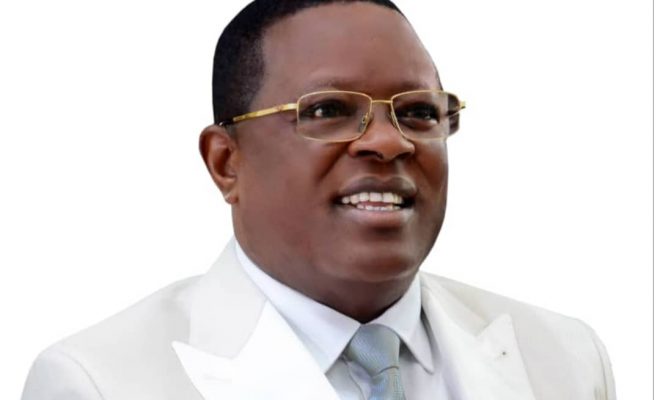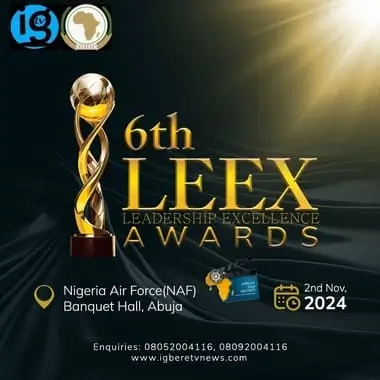...
By Festus Obasi
The established policies of Governor Umahi’s interest in infrastructural governance has directed attention to the way government make decisions about the allocation of resources for infrastructural investment in a most developed state, particularly highlighting the problematic decision-making. The critique has been directed at two levels: the substantive quality of decisions on the one hand and the procedural and institutional quality of the decision-making process on the other hand.
Concerning the first dimension, the critical assessment refers to levels of investments; regional, rural and sectoral distribution of resources that is priority setting and the leverage of resources. In other words, governments are criticised either for not investing enough or for investing too much in the wrongly sectors and projects. Not until you have critically analysed the Governor Umahi’s much interest in infrastructural governance which has brought Ebonyi thus far as the most enviable and fastest developing state in Nigerian recent time.

The discussion of the second procedural dimension is directly linked to the first in the sense that it highlights the limited capacity of government that is said to lack the tools and institutions that provide the foundation for good decision-making. Luckily to Ndi-Ebonyi they were divinely and enviably remembered by heaven after nineteen years of creation as a state. The emergence of Governor Umahi as the Governor of Ebonyi state represents the true revamping and emancipation of Ndi-Ebonyi from primitivity through Infrastructural development as a result of quality decisions.
The core elements recommended for improving the quality of decision-making in the national infrastructural plans that set key priorities across sectors in order to overcome administrative silos is one of the things that differenciates Governor Umahi from other Governor’s in Nigeria, the way and manner with which he has carefully selected his trustees, sets viable policies that have today returned Abakaliki to most emphasized emerging city in the country despite two third decline in allocation.
Another element is the advisory bodies that provide supposedly objective analyses of the costs and benefits of infrastructural investments by using state of the art tools of economic policy analysis. Such debates have caught accross various states that have adopted or are the adoption of arm’s length advisory or decision making bodies
for infrastructural governance. In the United Kingdom, for example, the National Infrastructure Commission (NIC) was recently established as an advisory body that should enable long-term strategic decision making to build effective and efficient infrastructure for the UK’(HM Treasury 2016).
In Germany, a proposal developed by an expert commission to establish a legally independent body for planning and building of roads has evolved into aserious initiative of the federal government (Expertenkommission 2015). Australia already established a national infrastructure advisory body, Infra-structure Australia (IA), in 2008 as part of an initiative to boost investment ininfrastructure and has recently strengthened its formal independence(Williams 2016). The Australian expert body in particular has received some praise by international organisations such as the Organisation for Economic Co-operation and Development (OECD) and the World Economic Forum(OECD 2010: 10, 2015: 23 f; WEF 2012).
All these is not different from the decisions of Governor Umahi in infrastructural governance when he decided to create the ministry of Infrastructural development in addition to the mostly used ministry of works in the last dispensation, and there’s no doubt about the fact that the ministry have made very tremendous progress inline with the policies of today’s government in Ebonyi state.
What is considered to be rude is the combination of disappointed inordinate ambicious political minors and the use of negative analytical tools such as cost–benefit analysis that allow the decoupling of the true facts just to alouse unnecessary attention just because of the fear of the sacrosanct outnumbering that have bedeviled them.
The decision from short sighted persons and politicised decision-making that follows the logics of party politicians and hence draw unnecessary attention spans just because there was no avail opportunity to milk the government as the case have always been before the emergence of Governor Umahi in 2015.
These examples are all indicative of a renewed interest in what Alasdair Roberts(2010) has conceptualised as the logic of discipline’, in other words the attempt to use institutional design to insulate economic policy-making from political interference (see also Flinders and Wood 2014). In the field of Infrastructural governance, the logic of discipline is combined with a renewed confidence in long-term planning and related models of decision-making. The key difference from the heyday of political planning in the late 1960s and early 1970s is the depoliticisation of decision-making: what used to be political planning should instead become something like depoliticised expert planning.The aim of this is to show the limits and risks of an institutional design debate for infrastructural governance that rests
infrastructural governance as political choice.
During medieval England the case was mutual, today people celebrate London.
Dubai that is popularly known as UAE is not in any difference.
This is the time to shun hatred and political bitterness and allow the God sent great emancipator that God sent to Ndi-Ebonyi to continue with what he is doing.
The advice is for oppositions to be factious rather than misleading the people especially now that Ebonyi state has the leader that is ready to do monumental and emancipatory projects for the state. For how long are we going to rely on eating potage and eating away the revolutionary strides that holds a better place for our future children.
Let us shun hatred and embrace the development that is coming our way.
Judging from the position of the state and the infrastructural state of governance in the state before the coming of Governor Umahi, you will know that the nineteen years of Ebonyi state was an absolute waste. Who will believe that even in the presence of decline in allocation and the recession that the country have experienced since 2015, Governor Umahi was able to achieve all that he has achieved overtime.
There’s no doubt about the fact that Ebonyi civil servants have always received their salaries at not more than the fifteenth day of every month of which can only be possibly found in Ebonyi in the whole Nigeria.
It is no longer news to hear that Ebonyi state of the recent time is carrying the highest number of political appointments in the whole federation as an evidence to an expanded infrastructural governance that is close to the people.
What is wrong with the fact that one contested an election that he is never qualified to contest and failed, having been considered, co-opted fortunately, instead of him to show appreciation of enjoying an unmerited favour, he decided to show the world the true demonstration of the mouth that bites the finger that feeds it is the true worth of envy and jeleousy showcased by Benard Odoh. Assumed the government of God fearing Governor Umahi did not appoint Benard Odoh as the state SSG, where on earth would he have gained the cheap popularity that he has used to unravel his greed life and his unverified professor of zero academic worth.
As the Infrastructural governance Governor Umahi is going on in Ebonyi state contemporarily, it is made to know that few are ready to showcase themselves to be enemies of progress cum distractors to the ongoing good work of the current Ebonyi state government, but God has filled the David of Ndi-Ebonyi with power.
God bless Chief Engr.(Dr.) David Nweze Umahi (FNSE,FNATE)!









All Comments